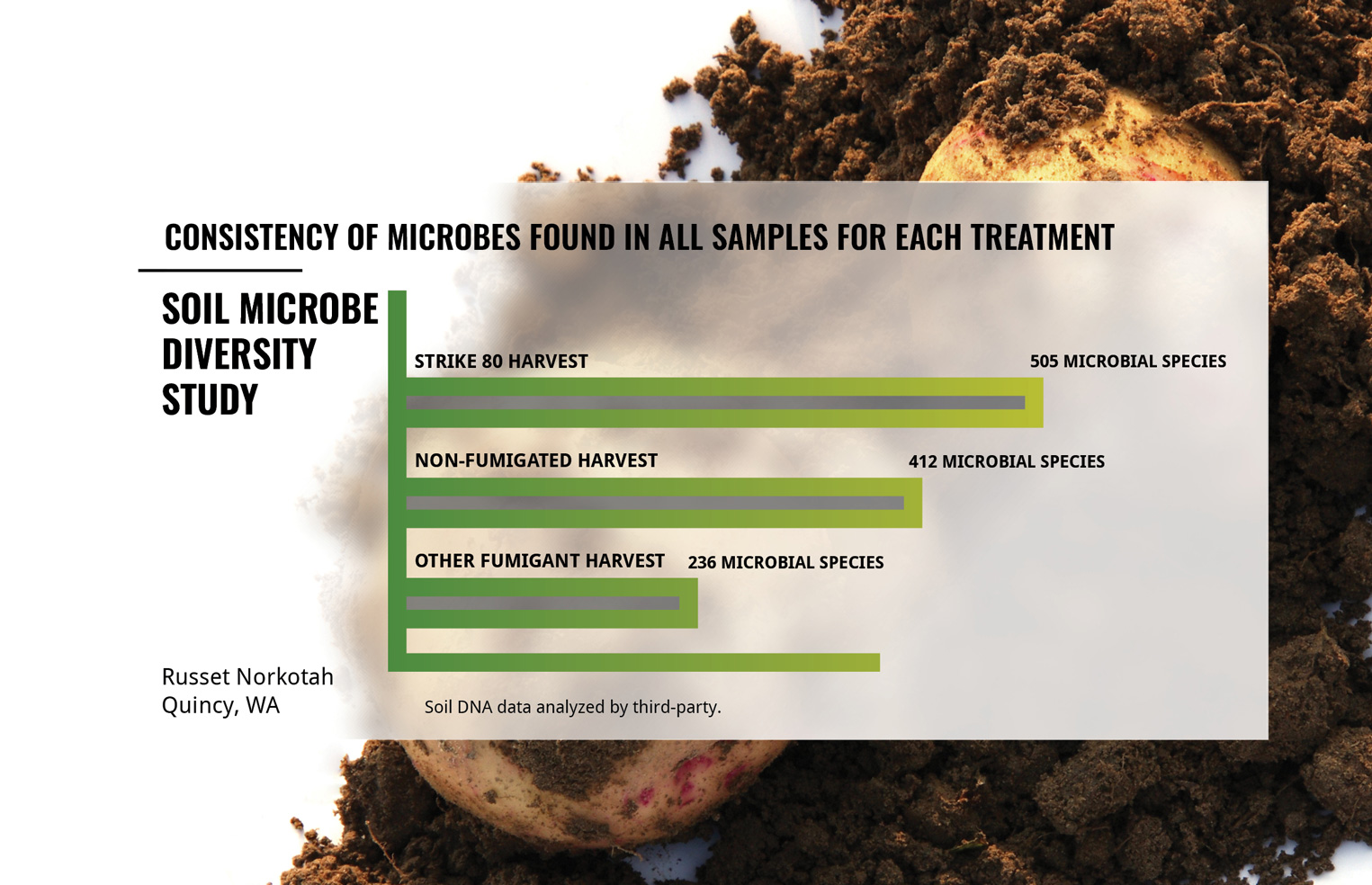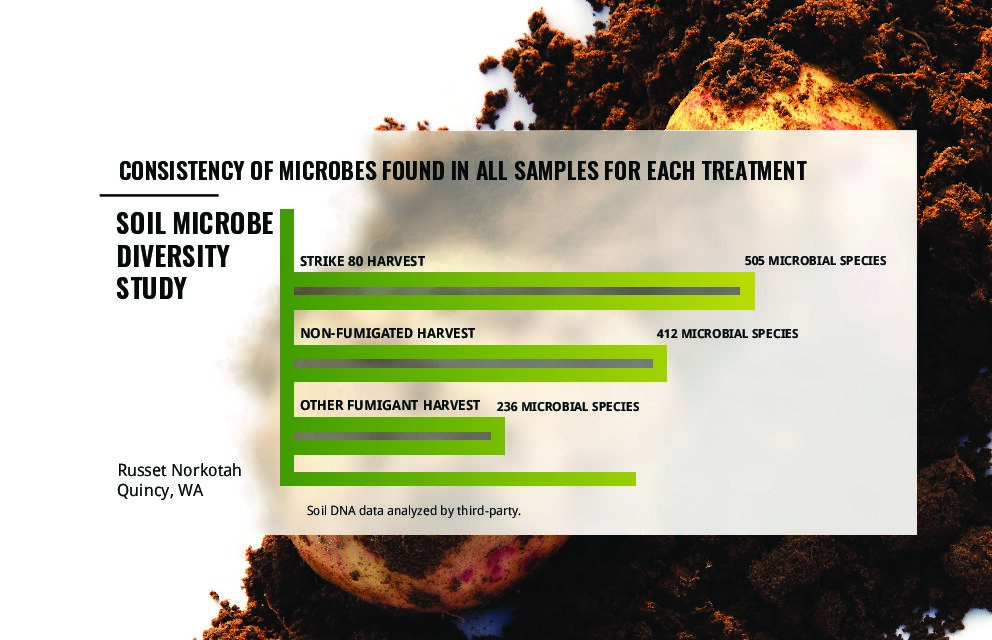In a recent grower meeting, the grower was expressing frustration at the diminishing returns he was experiencing with his current soil health regimen. One of our sales representatives asked the grower if he had considered the biological impact of his soil fumigation program. The grower confessed that he had not. That led to our latest article in SpudSmart magazine titled, “Pushing for Sustainability Is Good, But Only If We Know What We’re Aiming For”. Here is a summary of that article:
The whole industry is pressing forward on sustainability… but what does sustainability really mean? How do we define sustainability’s goals, how do we choose the tools to move sustainability forward, and how do we assess whether we’re achieving measurable sustainability improvement?
I define real change – what I call ‘functional sustainability’ – as a measurably positive impact to soil health, resource use efficiency, emissions or other parameters that align with or improve the total crop production system. There’s no point in crowing about a stand-alone sustainability improvement that costs yield, or a reduced-impact pesticide that leaves a crop more vulnerable. The only kind of sustainability efforts worth pursuing are practices that provide meaningful, functional, overall sustainability improvements within a real-world growing environment.
In the last handful of years, a wide variety of new technologies have come to the marketplace that measure crop production health in ways far beyond just yield. The one I’m most excited about is genomic analysis of soil’s microbiome, which uses DNA sequencing to identify the bacterial and fungal populations present in soil. By testing soil before and after specific input applications or management techniques, genomic analysis offers unbiased insight into how specific land management choices impact overall soil health.
Over the past two and a half years, we’ve sent approximately 2,000 soil samples from diverse croplands to a genomic analysis company called Biome Makers. While we see the benefit of this kind of unbiased insight in the context of our specific fumigant product – evidence that Strike suppresses soil borne disease while also supporting biological diversity, the growth of saprophytes, and soil health overall – genomic analysis for soil health has broad utility far beyond our specific application. Soil health is the foundation of sustainability. As such, we should be looking to what’s going on in the soil as a clear measuring stick of any sustainability effort.

This week at the Potato Expo we are showcasing Strike as a powerful tool for achieving “functional sustainability.” We will have a representative from Biome Makers on hand to share more about their proprietary DNA sequencing for soil health. Be sure to stop by!
STRIKE FUMIGANTS AT THE POTATO EXPO THIS WEEK – BOOTH 731
To read the full SpudSmart article, visit: Pushing For Sustainability Is Good (spudsmart.com)
